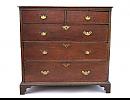Contact Seller
Rob Hall Antiques
Tel07858 820345Please quote Antiques Atlas.


 Scottish Celtic Iona Arts & Crafts Wallet Ritchie
Scottish Celtic Iona Arts & Crafts Wallet Ritchie
 1970s Rolex shop fitting ashtray
1970s Rolex shop fitting ashtray
 Antique Sofreh (dining Kilim).
Antique Sofreh (dining Kilim).
 Elm Three Tier Dumb Waiter c.1960
Elm Three Tier Dumb Waiter c.1960
 Antique Turkish Konya Yastik.Early 19th Century
Antique Turkish Konya Yastik.Early 19th Century
 Early Antique Tekke Turkmen Turkoman Chuval Face.
Early Antique Tekke Turkmen Turkoman Chuval Face.
 Set Antique Yuruk Nomadic Saddle Bags (heybe).
Set Antique Yuruk Nomadic Saddle Bags (heybe).
 Complete Set Of Very Rare Antique Saddle Bags
Complete Set Of Very Rare Antique Saddle Bags
 Antique Tribal Qashqai Horse Blanket Cover.
Antique Tribal Qashqai Horse Blanket Cover.
 Early Tribal Khamseh Bag Face. Khorjin Saddle Bag
Early Tribal Khamseh Bag Face. Khorjin Saddle Bag
 Bronze And Ormolu Neoclassical Campana Urns
Bronze And Ormolu Neoclassical Campana Urns
 Antique Leather Ship Fire Bucket George III Monogram
Antique Leather Ship Fire Bucket George III Monogram
Non UK callers :
+44 7858 820345
Early 19th C Tavern Coaching Times Indicator


1 of 5
A very rare wooden time indicator displaying the time of the next passenger and mail coach - the M & P denoting MAIL or PASSENGER. The arabic numerals around the painted dial denote the time up until 4pm - the time of the last coach.
In the centre the two brass rings would have held the pole on which the indicator was positioned in a tavern.
Originating in England in the 13th century, the stagecoach as we know it first appeared on England’s roads in the early 16th century. A stagecoach is so called because it travels in segments or "stages" of 10 to 15 miles. At a stage stop, usually a coaching inn, horses would be changed and travelers would have a meal or a drink, or stay overnight.
The first coaches were fairly crude and little better than covered wagons, generally drawn by four horses. Without suspension, these coaches could only travel at around 5 miles an hour on the rutted tracks and unmade roads of the time. During cold or wet weather, travel was often impossible. A writer of 1617 describes the “covered waggons (sic) in which passengers are carried to and fro but this kind of journeying is very tedious, so that only women and people of inferior condition travel in this sort.”
The first stagecoach route started in 1610 and ran from Edinburgh to Leith. Early coach travel was slow in 1673, it took eight days to travel by coach from London to Exeter! However the formation of a stage company in 1706 established a regular coach route between York and London and soon there were regular coach services on many other routes.
Coaching inns sprang up along these routes to service the coaches and their passengers. Many of these inns are still trading today they can be recognised by the archways which allowed the coaches to pass through into the stable yard behind the inn.I
n the 17th and 18th centuries, stagecoaches were often targeted by highwaymen such as Dick Turpin and Claude Duval. Today we have rather a romanticised notion of highwaymen with their cries of ‘Stand and Deliver!’, but in reality these masked men terrorised the roads of England. The punishment for highway robbery was hanging and many highwaymen met their maker at the gallows at Tyburn.
The golden age of the stagecoach was during the Regency period, from 1800 to 1830. The era saw great improvements in the design of the coaches, notably by John Besant in 1792 and 1795. His coach had a greatly improved turning capacity and braking system and a novel feature that prevented the wheels from falling off while the coach was in motion. Besant, with his partner John Vidler, enjoyed a monopoly on the supply of coaches, and a virtual monopoly on their upkeep and servicing for the following few decades.
The development of the railways in the 1830s heralded the end for the stagecoaches and mail coaches. The first rail delivery between Liverpool and Manchester took place on 11 November 1830. By the early 1840s most London-based coaches had been withdrawn from service.
Early 19th century
Measuring 21” wide, 9.5” high
£3,250
SellerRob Hall Antiques
View all stock from
Rob Hall Antiques

 Private dealer
Private dealer
By appointment only
Oundle,
Northants
Tel : 07858 820345
Non UK callers : +44 7858 820345
In the centre the two brass rings would have held the pole on which the indicator was positioned in a tavern.
Originating in England in the 13th century, the stagecoach as we know it first appeared on England’s roads in the early 16th century. A stagecoach is so called because it travels in segments or "stages" of 10 to 15 miles. At a stage stop, usually a coaching inn, horses would be changed and travelers would have a meal or a drink, or stay overnight.
The first coaches were fairly crude and little better than covered wagons, generally drawn by four horses. Without suspension, these coaches could only travel at around 5 miles an hour on the rutted tracks and unmade roads of the time. During cold or wet weather, travel was often impossible. A writer of 1617 describes the “covered waggons (sic) in which passengers are carried to and fro but this kind of journeying is very tedious, so that only women and people of inferior condition travel in this sort.”
The first stagecoach route started in 1610 and ran from Edinburgh to Leith. Early coach travel was slow in 1673, it took eight days to travel by coach from London to Exeter! However the formation of a stage company in 1706 established a regular coach route between York and London and soon there were regular coach services on many other routes.
Coaching inns sprang up along these routes to service the coaches and their passengers. Many of these inns are still trading today they can be recognised by the archways which allowed the coaches to pass through into the stable yard behind the inn.I
n the 17th and 18th centuries, stagecoaches were often targeted by highwaymen such as Dick Turpin and Claude Duval. Today we have rather a romanticised notion of highwaymen with their cries of ‘Stand and Deliver!’, but in reality these masked men terrorised the roads of England. The punishment for highway robbery was hanging and many highwaymen met their maker at the gallows at Tyburn.
The golden age of the stagecoach was during the Regency period, from 1800 to 1830. The era saw great improvements in the design of the coaches, notably by John Besant in 1792 and 1795. His coach had a greatly improved turning capacity and braking system and a novel feature that prevented the wheels from falling off while the coach was in motion. Besant, with his partner John Vidler, enjoyed a monopoly on the supply of coaches, and a virtual monopoly on their upkeep and servicing for the following few decades.
The development of the railways in the 1830s heralded the end for the stagecoaches and mail coaches. The first rail delivery between Liverpool and Manchester took place on 11 November 1830. By the early 1840s most London-based coaches had been withdrawn from service.
Early 19th century
Measuring 21” wide, 9.5” high
£3,250
Price The price has been listed in British Pounds.
Conversion rates as of 10/APR/2025. Euro & Dollar prices will vary and should only be used as a guide.
Always confirm final price with dealer.
Date Early 19th century
Mid 19th Century Antiques Material Wood
Item code as226a321
Status Sold
£3250.00 
$4212.00 
€3765.45 

$

€

Conversion rates as of 10/APR/2025. Euro & Dollar prices will vary and should only be used as a guide.
Always confirm final price with dealer.
View all stock from
Rob Hall Antiques

 Private dealer
Private dealerBy appointment only
Oundle,
Northants
Tel : 07858 820345
Non UK callers : +44 7858 820345
You may also be interested in
 Scottish Celtic Iona Arts & Crafts Wallet Ritchie
Scottish Celtic Iona Arts & Crafts Wallet Ritchie
 1970s Rolex shop fitting ashtray
1970s Rolex shop fitting ashtray
 Antique Sofreh (dining Kilim).
Antique Sofreh (dining Kilim).
 Elm Three Tier Dumb Waiter c.1960
Elm Three Tier Dumb Waiter c.1960
 Antique Turkish Konya Yastik.Early 19th Century
Antique Turkish Konya Yastik.Early 19th Century
 Early Antique Tekke Turkmen Turkoman Chuval Face.
Early Antique Tekke Turkmen Turkoman Chuval Face.
 Set Antique Yuruk Nomadic Saddle Bags (heybe).
Set Antique Yuruk Nomadic Saddle Bags (heybe).
 Complete Set Of Very Rare Antique Saddle Bags
Complete Set Of Very Rare Antique Saddle Bags
 Antique Tribal Qashqai Horse Blanket Cover.
Antique Tribal Qashqai Horse Blanket Cover.
 Early Tribal Khamseh Bag Face. Khorjin Saddle Bag
Early Tribal Khamseh Bag Face. Khorjin Saddle Bag
 Bronze And Ormolu Neoclassical Campana Urns
Bronze And Ormolu Neoclassical Campana Urns
 Antique Leather Ship Fire Bucket George III Monogram
Antique Leather Ship Fire Bucket George III Monogram






